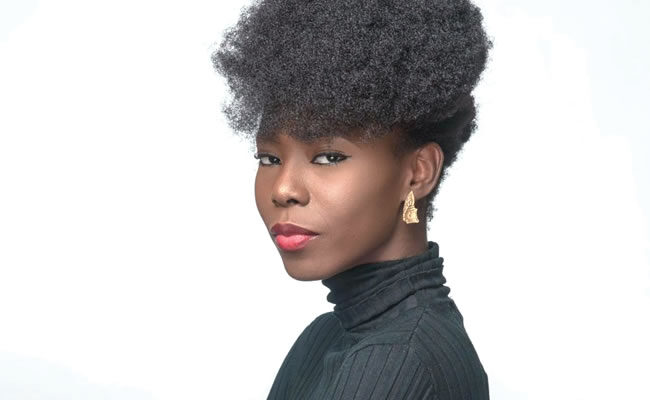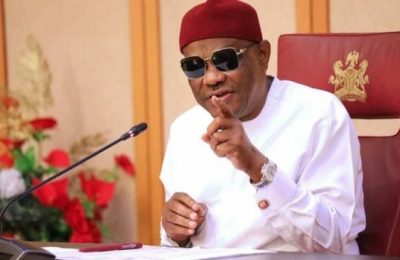
Blessing Abeng, is a member Forbesunder30 and Co-Founder, Ingressive for Good a non-profit organisation that trains young people in tech skills. In this interview by ADEWUNMI ADEDAYO, she speaks about her greatest achievement, what helped her to be successful, her failures and lessons. Excerpts:

What was growing up like for you?
Growing up was very interesting for me. My parents were particular about our learning. They were very intentional about us going to the best schools that they could afford, also intentional about ensuring that we had access to resources. My dad would buy books and then, I liked books that were above my age so I read different types of books. I was reading Junior Secondary S chool books while I was in primary school and it was pretty interesting. My father also raised me to believe that I could do anything that I wanted to. This was triggered when my mum went out one day and when she got back, she started crying and was praying for us, saying positive things about our lives.
She said and I remember “you are going to be greater than any male child, you will be limitless, you will do great things and people would marvel at the success that you will accomplish” and so on. I didn’t understand it until later when she shared that someone had just asked when she will actually have a child and she replied that she has children, but they said, “No, you don’t have a child until you have a male child, you just have two girls” and this really had an impact on her and she came home and said those positive words to us. I guess that also affected the way they raised us because they raised us to believe that we could be anything and not our age, gender or anything at all could limit us. It really affected how we grew up; I played football as a kid, I danced, I sang, I knocked mathematics; I was part of science competition. I could do anything and it was such a great gift.
What are your greatest achievements in life?
I think the greatest achievement that I would point to would first be having the family that I have. Second would be looking at all the stories that come about because of an encounter with me or something that I had been part of. There had been times when people would reach out to me and they would say things like, “oh, Blessing! This was where I was in my life but because of these things that you did, my life changed completely.” We have a documentary coming up this month and it tells the story of a lady who was a farmer. She was farming just to make ends meet and it was difficult for her, she wasn’t earning much and it was such a rigorous task and then she came in contact with a non-profit organisation that I co-founded and she learnt tech skills and today, she is working a tech job. People are now inviting her to come and mentor on programmes. She’s earning way more than she was earning before. That was sort of mind shifting for me, knowing the different people who have encountered something that I’ve been part of or something I’ve built and it has made such a great impact or it has changed the course of their lives in one way or the other.
Have you encountered any gender-related obstacle in your career and how were you able to overcome?
Of course, I have and I’m sure that every woman would have in one way or the other, be it subtle or glaring. One interesting one that I talk about a lot was a time in my life where I was working in an organisation where I was the only woman and the youngest and also the second in command there. It was really interesting because it was a bit difficult for some of the men, especially the older ones to take directions from me. However, I was able to help them see that it’s not just about me. If the company doesn’t work, we are all going to be out of jobs, so we have to do our best. I told them not to do it for me, but for themselves. It was such a mind shift for some of them because at the end of the day, it showed me that most times, irrespective of biases, most times people don’t joke with their money. So, that was the helpful way I was able to combat it. By having an open conversation and by calling out the action but not the person.
How do you feel being recognised as a member of Forbes30under30?
It is such a humbling experience. To start with, I didn’t expect it but it’s very rewarding and validating to see that the work that I have been doing for almost a decade did not go unnoticed. I was the co-founder of Disha, a tech company that got acquired by a unicorn in Africa (Flutterwave), I’m now the co-founder of a non-profit organisation that has trained over 132,000 people across Africa and that’s really great. We’ve placed thousands of people on board. So, being recognised for doing the work is such a humbling experience. It made me so happy and I’m excited about it.
What do you think helped you make your career as a woman and what is the biggest thing that has helped you to be successful?
I think there are so many things that helped me. The very first thing is that I’ve been lucky and blessed to be surrounded by people who are willing to help me but I’ve also been wise to ask for help. Sometimes, people think asking for help is weakness, but I think otherwise. The world was built on contribution. We all are born to contribute to the betterment of each others’ lives. Just like paying attention to the fact that one thing births the next and we are all here to contribute.
So, being able to give value and being willing to receive value has been mind shifting for me. I have a very rich and amazing circle of friends, family who have been supportive and not just rich because of finances but rich because they are willing to give me their time. We are willing to share ideas and things like that and that has been really great.
Another thing that has helped me is experimenting, it has shifted the way that I see failure. My willingness to try to do things even though I am afraid. The goal of experiment is not just to be right, but to discover. I will either discover that I’m wronged or it worked. Even if I discover that I was wrong, I’m going to learn a lesson from it that I can use for something else. Another thing that has helped is documenting my process and paying attention to be able to create repeatable success. You will want to be noting down what you’re noticing.
These are the key things that I do, I note down my actions and what I’m noticing and also my results and if I’m in another scenario, I ask myself how I can replicate what I did in the other situation and how I can make it better. These things were really helpful and just having to see people who are being able to live my dream in front of me, thanks to technology, makes me hopeful and encouraged too.
Have you ever failed and how were you able to overcome?
I have failed many times, but beyond failing many times, I probably am still failing at a few things and I think failure is a part of life as I said earlier, I have tweaked how I see failure. I think that we are all winging it, we don’t know anything for sure, and we are figuring it out as we go. What works for me may not work for someone else because their context is different. Just understanding that has been very freeing. Understanding that every single day that I wake up is just an opportunity to experiment and see the outcome. Being able to consistently try things and realise the outcome. That has shifted my perspective, so I don’t see failure as “oh, I failed”, but as “this didn’t work out, because I tried it this way, is there another way I should try it?” Being able to make mistakes gave me new questions, and made me poke at different things. That made me become intentional about specific things, that I learnt by experience and searching. There are things in life you will fail at and you will learn the hard way, but you will have new questions and it will open up new opportunities. Don’t give up when you fail you only fail when you give up.
How can women help other women in their given fields?
By just living your life and showing that you are an example might be a way to support a woman. In your role, do the best you possibly can to show excellence and show that the life you live, other women can live it too. Another thing is seek ways to support, no matter how little. You could be a listening ear, you could be a mentor and so on. Looking out for each other is so important within the work place because you need to feel like you’re in a safe place to thrive. If you have somebody else that looks out for you and have your best interest at heart, it gives you the opportunity to show up at your best. One thing I always tell women is to pave way for other women; be an inspiration through your words, your action and your result. Help out when you can, provide support; ask where they need help it doesn’t take anything from you.
READ ALSO FROM NIGERIAN TRIBUNE







